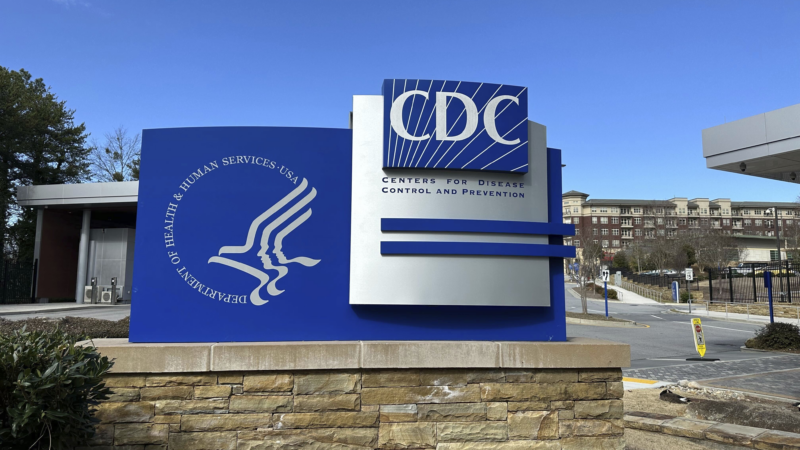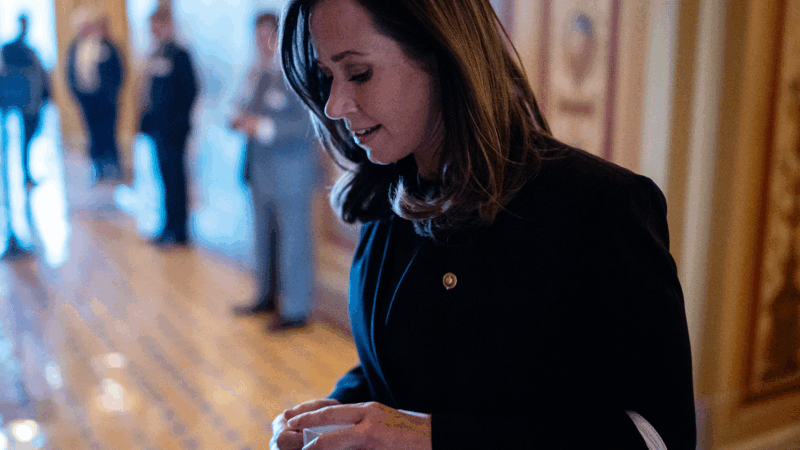After delays, first vaccine advisory meeting under RFK Jr. set to start
For the first time since Robert F. Kennedy Jr. took charge of the Department of Health and Human Services, vaccine advisers to the Centers for Disease Control and Prevention are meeting publicly to discuss the nation’s vaccine policies.
A meeting of the CDC’s advisory committee on immunization practices was initially scheduled for February but was postponed, raising concerns among some scientists and those working in public health about political interference in vaccine policy. The two-day meeting starts Tuesday morning.
The committee’s advice shapes access to and insurance coverage for vaccines.
“I’m reassured and very glad to see that it’s happening,” says Claire Hannan, executive director of the Association of Immunization Managers. “It’s important to have this ongoing review of data and science, looking at the evidence that goes into the vaccine schedule in an open forum.”
The advisory committee typically holds public meetings three times a year, which are live streamed online.
During this week’s meeting, the committee’s independent advisors will hear from CDC staff on a range of vaccines, including HPV, COVID and flu, and vote on recommendations for some of them such as RSV and the tropical mosquito-borne viral disease chikungunya.
The current agenda is similar to the proposed agenda for February, though it omits a vote on influenza vaccines that was on that agenda.
When asked about the change, HHS spokesperson Emily Hilliard responded on behalf of CDC: “ACIP agenda items are always subject to change depending on what the working groups have ready for consideration.” She further clarified: “This was not the annual vote for the routine use of the influenza vaccine for the upcoming season.”
The advisors are independent experts who volunteer to serve on the committee. Dorit Reiss, a law professor at UC San Francisco, says she expects them to remain independent and hold thoughtful, rigorous discussions as they usually do.
But she’s concerned about the effects of political interference on CDC staff who help run these meetings, who “are in a much more vulnerable position after extensive layoffs,” Reiss says.
There have been deep cuts to CDC staff since President Trump took office, including some officials who would have participated or spoken in this week’s meeting.
It’s had a chilling effect on those who are left.
“I’ll be looking to see if they change the process in any way,” Reiss says. For example she says she’ll be watching for changes in how conflicts of interest are handled – a topic Kennedy has raised repeatedly – or whether they put time limits on discussions among committee members, Reiss says.
Signs of political interference may be subtle, says Katelyn Jetelina, an epidemiologist and data scientist who writes the newsletter “Your Local Epidemiologist.” What it may take, she says, is “for those of us that have listened to hundreds of ACIP meetings to report back whether it is just business as usual or there’s some sketch things beneath the surface.”
Vaccine advocates are concerned over potential shifts in policy and official stances that may reduce confidence in vaccines.
“What I don’t want to see go away is a very strong endorsement of the use of vaccines as preventive medicine,” says Dr. Anthony Fiore, a former CDC official who worked closely with the vaccine advisory committee before retiring from the agency in 2021.
He’s concerned because Kennedy has cast doubt on vaccine safety and canceled funding for research into vaccine hesitancy.
“Up to this point, every HHS director and every CDC director has been very enthusiastic about vaccines as they save money and they’re an excellent preventive tool,” Fiore says. But if public confidence in vaccines gets undermined, vaccination levels could drop below the levels needed to reduce transmission and protect the population from disease, he says.
Bill making the Public Service Commission an appointed board is dead for the session
Usually when discussing legislative action, the focus is on what's moving forward. But plenty of bills in a legislature stall or even die. Leaders in the Alabama legislature say a bill involving the Public Service Commission is dead for the session. We get details on that from Todd Stacy, host of Capitol Journal on Alabama Public Television.
My doctor keeps focusing on my weight. What other health metrics matter more?
Our Real Talk with a Doc columnist explains how to push back if your doctor's obsessed with weight loss. And what other health metrics matter more instead.
Baz Luhrmann will make you fall in love with Elvis Presley
The new movie is made up of footage originally shot in the early 1970s, which Luhrmann found in storage in a Kansas salt mine.
Forget the State of the Union. What’s the state of your quiz score?
What's the state of your union, quiz-wise? Find out!
SNL mocked her as a ‘scary mom.’ In the Senate, Katie Britt is an emerging dealmaker
Sen. Katie Britt, Republican of Alabama, is a budding bipartisan dealmaker. Her latest assignment: helping negotiate changes to immigration enforcement tactics.
As the U.S. celebrates its 250th birthday, many Latinos question whether they belong
Many U.S.-born Latinos feel afraid and anxious amid the political rhetoric. Still, others wouldn't miss celebrating their country








